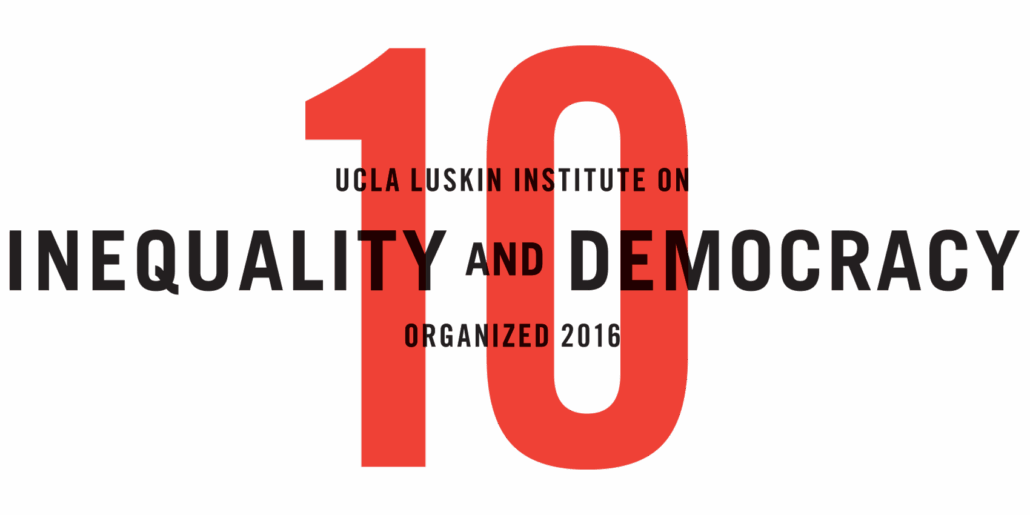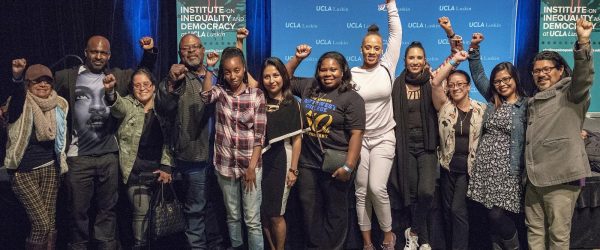Organizing Knowledge to Challenge Inequality
Since its launch in February 2016, the UCLA Luskin Institute on Inequality and Democracy has focused on the dispossessions and displacements starkly evident in cities around the world. Our home in global Los Angeles has given us a distinctive vantage point, bringing into sharp view structures of spatial exclusion, from evictions to mass incarceration, from racialized policing to predatory financialization. 2018 marks fifty years since the report issued by the National Advisory Commission on Civil Disorders, also known as the Kerner Commission. That landmark report highlighted “deepening racial division” including “segregation and poverty” in the United States. Most significant, it implicated “white institutions” and “white society” in the making of the “racial ghetto.” In their study of South Los Angeles, Paul M. Ong, Andre Comandon, Alycia Cheng, and Silvia R. González, take a look at a half-century of progress. Their findings are sobering and reveal “broken promises and modest improvements.” The researchers conclude: “Despite the huge efforts of residents, activists, and others, the burden of under-investment and neglect continue to limit economic opportunity for too many Angelenos.”
But 1968 also marked a historical moment of worldwide uprisings. In Los Angeles, the rebellions included the Chicano Blowouts, a series of walk-outs and strikes by high school students. Manuel Criollo, the 2018 Activist-in-Residence at the Institute, reflects on this legacy. In particular, he notes “the proliferation of police presence in schools which was introduced to squash this movement’s demands.” Criollo’s own activism, which was the focus of his residency at the Institute, challenges the criminalization of black and brown youth and aims to remove police from the LA Unified School District and from schools nationwide. His is one of several “freedom dreams” we seek to support through the work of the Institute.
In his important and moving book, Freedom Dreams: The Black Radical Imagination (Beacon Press, 2002), Robin D.G. Kelley argues that “the map to a new world is in the imagination.” Professor Kelley has been a key presence at the Institute since its inception and so has been the idea of “freedom dreams.” Our intent is to produce university-based research which can contribute to struggles for justice and freedom. Earlier this year, we presented such research at a two-day conference held at the LA Trade-Tech College in South Los Angeles. Titled “Black, Brown, and Powerful: Freedom Dreams in Unequal Cities,” the event brought together scholar-activists, both from universities and community organizations, to discuss issues such as black work, criminal justice debt, and system-supervised youth. In doing so, it sought to foreground how subordinated groups are building power, be it in the form of rent strikes or debtors’ unions.
The conference generated considerable homework for university-based researchers and pinpointed specific roles they can play in relation to social movements in cities such as Los Angeles. At the Institute, we take this homework very seriously. In particular, we hope to advance the field of housing justice through a global research coordination network funded by the National Science Foundation (BCS 1758774). The network is meant to build a transnational and interdisciplinary collaboration to tackle research problems pertaining to housing precarity and residential segregation. Linking nodes of research and activism in the global South and global North, the network will be a space to collect, curate, and analyze community and policy responses that seek to create housing access and housing justice through legal frameworks, cooperative models of land and housing, and collective action.
In our efforts to support grassroots power, we are constantly cognizant of the present historical conjuncture. Since the election of Trump, the Institute has supported forms of academic knowledge and public scholarship that seek to divest from whiteness. We marked the inauguration of the Trump administration with the call to “teach, organize, resist.” We marked Election Day 2017 with an event with Indivisible, a national network of local groups advocating for bold, progressive policies and leaders. Several of our graduate student working groups are paying close attention to the changing political economy of social policy and nonprofit work, as in this briefing paper on immigrant-serving nonprofits in the greater Los Angeles area by Social Welfare doctoral student, Rachel Wells, and her colleagues.
Our work is rooted in a conceptual commitment to the study of race and capitalism. Running through the public programs and research projects of this past year is an explicit consideration of racial capitalism in the United States as well as of global systems of colonialism, imperialism, and development. As evident at our Fall 2017 conference, Race and Capitalism: Global Territories, Transnational Histories, we locate today’s unequal cities in the long history of racialized dispossession and political subjection. Yet, it is also the framework of racial capitalism that allows us to speak back to academic disciplines, to contest the silences and absences of official knowledge, and to imagine freedom dreams.
Ananya Roy
Director, UCLA Luskin Institute on Inequality and Democracy




